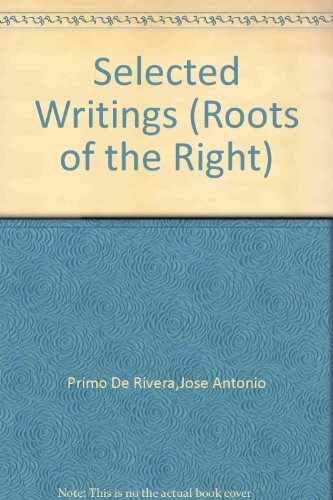José Antonio Primo de Rivera y Sáenz de Heredia, 1st Duke of Primo de Rivera, 3rd Marquis of Estella was a Spanish lawyer, nobleman, politician, and founder of the Falange Española ("Spanish Phalanx"). He was executed by the Spanish republican government during the course of the Spanish Civil War.
Background
José Antonio Primo de Rivera was born in Madrid on April 24, 1903, the eldest son of General Miguel Primo de Rivera, Prime Minister and Dictator under the monarchy of King Alfonso XIII of Spain. From his father he inherited the title of Marquis of Estella (in Navarre). His mother died when he was five years old, and he was subsequently raised by his father's sister.
Education
After receiving his early education under private tutors, he studied law at the University of Madrid, graduating in 1922.
At the university he joined in the student political activities.
Career
At the university he joined in the student political activities. During this period he also took military training both in Madrid and Barcelona, obtaining the rank of second lieutenant in the reserve. Shortly after Primo de Rivera's graduation, his father became dictator and he himself opened a law office in Madrid. Primo de Rivera began his political career as a member of the Unión Monárquica Nacional (National Monarchic Union). On the downfall of the monarchy (April 1931), he served as representative in the parliament, or Cortés. In March 1933 he cooperated in establishing the first Spanish Fascist periodical--a weekly newspaper called El Fascio. The publication was quickly confiscated and suppressed by the Second Republic, but the controversy it aroused in the national press prepared the public for the foundation of the Fascist political party Falange Española (Spanish Phalanx), which occurred on Oct. 29, 1933, in Madrid. The new party soon merged with the Nazi type organization known by its initials JONS (National Syndicalist Working Youth). The Falange was organized into military units called flags, centuries, and squadrons. It adopted the traditional anarchist colors--red and black--and the yoke and arrows as a symbol. Party members addressed one another as comrades, and the leaders of the movement were called hierarchs. The party's political philosophy was romantic nationalism as expressed by G. W. F. Hegel and later adapted by Benito Mussolini in The Doctrine of Fascism. Opposing both liberalism and Marxism, the Falange advocated a totalitarian nationalism to combat capitalism and communism. Power was to be achieved by force and the nation ruled by corporative units under party control. The core of the Falangist doctrine is stated in the speeches and letters of Primo de Rivera, edited and distributed by the Spanish government under the title Obras Completas ("Complete Works"), and in the weeklies F. E. and Arriba, founded in 1933 and 1935 respectively. In June 1935, at a secret meeting of the party leaders, Primo de Rivera was vested with full powers to plan the overthrow of the Republic in cooperation with the army. The conspiracy was discovered and Rivera was imprisoned on March 14, 1936. On July 18 the Civil War broke out and turned the entire country into a battleground. Primo de Rivera was tried and executed by a firing squad in Alicante, on Nov. 20, 1936. The party survived in the dictatorship of Gen. Francisco Franco.
Politics
On October 29, 1933, Primo de Rivera launched Falange Española ("Spanish Phalanx"), a nationalist party inspired by Fascism. The foundational convention was held in the Teatro de la Comedia of Madrid. He was the keynote speaker and his first address was a criticism of liberal democracy.
The political canon of Falange resembled that of Italy's Partito Nazionale Fascista. It shared its dislike of Marxism and its contempt for democracy. Primo de Rivera proposed that the creation of a hierarchical trade-union hegemony under Falangist control would guarantee the robust protection of every honest worker. Additionally the Falangist platform called for extensive agrarian reforms, for the nationalization of the banking system and for the suppression of all political parties. Until the desired establishment of one-party rule Falange preferred the formalities of a liberal democracy. The party had no formal view on religion other than to guarantee freedom of worship while at the same time acknowledging and affirming that Roman Catholicism was the historical preference of the Spanish people.
Views
Quotations:
"Fascism was born to inspire a faith not of the Right (which at bottom aspires to conserve everything, even injustice) or of the Left (which at bottom aspires to destroy everything, even goodness), but a collective, integral, national faith. "





